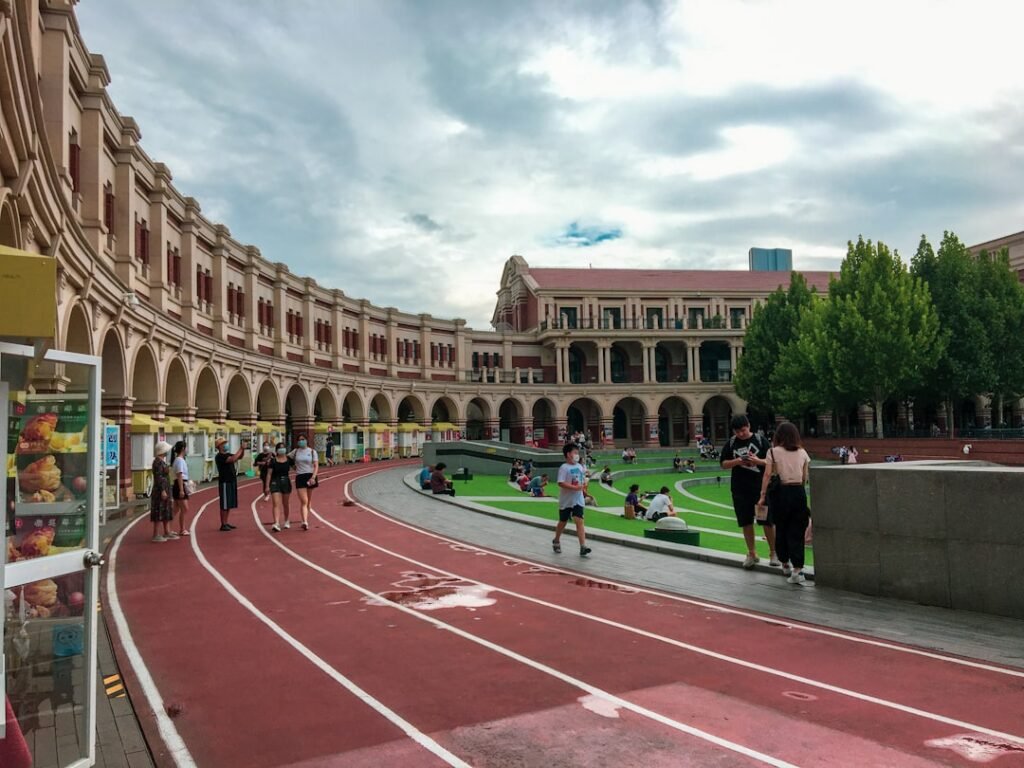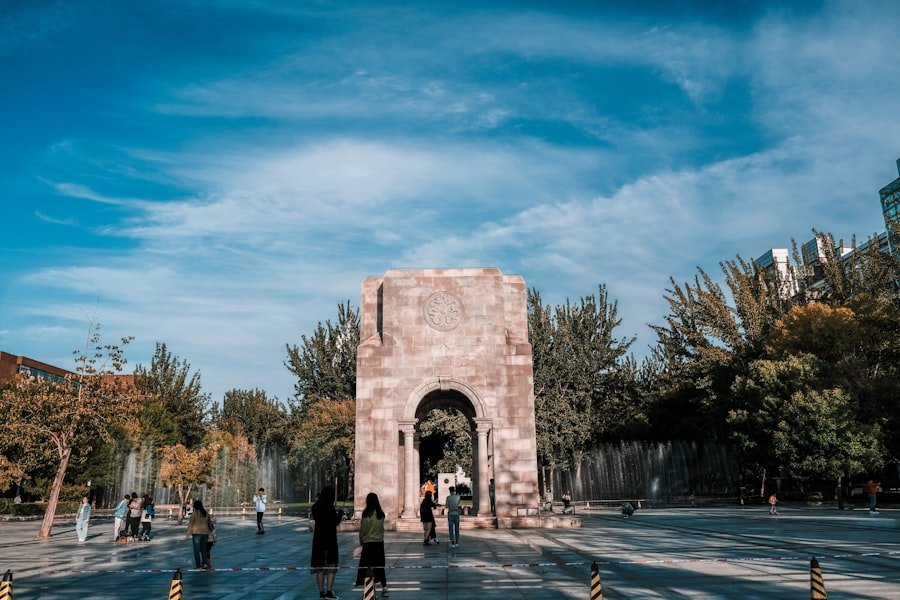

What to Say When You’re Lost: A Traveler’s Guide to Chinese Phrases
Navigating through the vast and vibrant landscapes of China can be both an exhilarating and daunting experience for travellers. With its rich tapestry of history, culture, and modernity, the country offers a plethora of sights and experiences that are simply unmatched. However, for those unfamiliar with the language and customs, finding one’s way can pose a significant challenge.
Understanding basic Chinese phrases and expressions is essential for anyone looking to explore the bustling streets of Beijing, the serene gardens of Suzhou, or the majestic Great Wall. The ability to communicate effectively not only enhances your travel experience but also fosters a deeper connection with the local culture. As you embark on your journey through this fascinating nation, equipping yourself with essential phrases will empower you to navigate with confidence.
From asking for directions to ordering food, mastering these key expressions will ensure that you can immerse yourself fully in the wonders that China has to offer. Start learning Chinese at the NLS Norwegian Language School in Oslo now!
Table of Contents
ToggleSummary
- Navigating in China can be challenging, but learning some essential phrases in Chinese can make it much easier.
- When asking for directions in Chinese, it’s important to be polite and clear about where you want to go.
- Knowing common landmarks and locations in Chinese can help you navigate and communicate more effectively with locals.
- Learning emergency phrases in Chinese can be crucial for getting help in difficult situations.
- Using public transportation in China can be convenient, but it’s important to know some basic phrases to navigate it effectively.
Asking for Directions in Chinese
When traversing the streets of China, knowing how to ask for directions is crucial. The language barrier can often lead to confusion, but with a few simple phrases, you can easily find your way. A common phrase to start with is “请问,…在哪里?” (Qǐngwèn, …
zài nǎlǐ?), which translates to “Excuse me, where is…?” This phrase can be followed by the name of your desired location, such as “火车站” (huǒchēzhàn) for “train station” or “酒店” (jiǔdiàn) for “hotel.” Additionally, it is helpful to learn how to understand directions given by locals. Phrases like “左转” (zuǒ zhuǎn) meaning “turn left,” “右转” (yòu zhuǎn) meaning “turn right,” and “直走” (zhí zǒu) meaning “go straight” will be invaluable. By familiarising yourself with these terms, you will not only be able to ask for directions but also comprehend the responses you receive, making your navigation through cities much smoother.
Common Landmarks and Locations in Chinese

As you explore China, you’ll encounter numerous landmarks that are steeped in history and culture. Familiarising yourself with their names in Chinese will enhance your experience and allow you to engage more meaningfully with locals. For instance, the iconic “长城” (Chángchéng), or Great Wall, is a must-visit site that embodies China’s historical significance.
Knowing how to pronounce its name will enable you to ask for directions or recommendations related to this monumental structure. Other notable locations include “故宫” (Gùgōng), the Forbidden City, and “天安门广场” (Tiān’ānmén Guǎngchǎng), Tiananmen Square. Being able to identify these landmarks in Chinese not only enriches your vocabulary but also demonstrates respect for the local culture.
When conversing with locals about these sites, you may find that they are eager to share their insights and stories, further enhancing your travel experience.
Emergency Phrases for Getting Help
In any travel situation, emergencies can arise unexpectedly. Being prepared with essential phrases can make a significant difference in ensuring your safety and well-being. Knowing how to say “我需要帮助” (Wǒ xūyào bāngzhù), which means “I need help,” is vital in any urgent situation.
This phrase can be used in various contexts, whether you are lost, feeling unwell, or require assistance with your belongings. Additionally, it is wise to learn how to express specific needs during emergencies. For instance, if you require medical assistance, saying “我需要医生” (Wǒ xūyào yīshēng) translates to “I need a doctor.” Similarly, if you find yourself in a situation where you need the police, you can say “请叫警察” (Qǐng jiào jǐngchá), meaning “Please call the police.” Familiarising yourself with these emergency phrases will provide peace of mind as you navigate through unfamiliar territories.
Using Public Transportation in China
China boasts an extensive public transportation system that is both efficient and affordable. However, navigating this system can be challenging without a basic understanding of the language. When using buses or subways, knowing how to ask about routes and schedules is essential.
A useful phrase is “这辆车去…吗?” (Zhè liàng chē qù … ma?), which means “Does this bus/train go to…?” Moreover, understanding signage and announcements is crucial for a smooth journey. Familiarising yourself with common terms such as “站” (zhàn) for “station” and “票” (piào) for “ticket” will help you navigate ticket counters and platforms more effectively.
Additionally, learning numbers in Chinese will assist you in purchasing tickets and understanding fare information. By mastering these phrases and terms, you will find that using public transportation in China becomes a more manageable and enjoyable experience.
Ordering Food and Drinks in Chinese

One of the most delightful aspects of travelling in China is indulging in its diverse culinary offerings. To fully appreciate this gastronomic adventure, knowing how to order food and drinks in Chinese is essential. A simple yet effective phrase to start with is “我想要…” (Wǒ xiǎng yào…), which means “I would like…” This phrase can be followed by the name of the dish or drink you wish to order.
For instance, if you’re craving dumplings, you can say “我想要饺子” (Wǒ xiǎng yào jiǎozi). Additionally, it’s helpful to learn how to express dietary preferences or restrictions. Phrases like “我不吃肉” (Wǒ bù chī ròu), meaning “I don’t eat meat,” or “我对海鲜过敏” (Wǒ duì hǎixiān guòmǐn), meaning “I am allergic to seafood,” will ensure that your dining experience is enjoyable and safe.
Communicating with Hotel Staff in Chinese
When staying at hotels in China, effective communication with staff can greatly enhance your experience. Knowing how to check in and out smoothly is essential for a hassle-free stay. A simple phrase like “我有预订” (Wǒ yǒu yùdìng), meaning “I have a reservation,” will help you convey your status upon arrival.
Furthermore, it’s beneficial to learn how to request additional services or amenities during your stay. For example, if you need extra towels, you can say “请给我多一点毛巾” (Qǐng gěi wǒ duō yīdiǎn máojīn), which translates to “Please give me more towels.” Establishing a rapport with hotel staff through basic communication can lead to better service and even recommendations for local attractions.
Shopping and Bargaining in Chinese
Shopping in China can be an exciting adventure filled with unique finds and cultural experiences. However, bargaining is often part of the shopping process, especially in markets and street stalls. Knowing how to negotiate prices in Chinese can give you an edge while shopping.
A common phrase used when bargaining is “太贵了” (Tài guì le), meaning “It’s too expensive.” This phrase signals your intention to negotiate. Additionally, learning numbers will be invaluable when discussing prices. For instance, if you want to offer a lower price, you can say “我可以给你…元” (Wǒ kěyǐ gěi nǐ …
yuán), which means “I can give you … yuan.” Engaging in friendly banter while bargaining not only makes the experience more enjoyable but also allows you to connect with local vendors on a personal level.
Making Small Talk with Locals
Engaging in small talk with locals can enrich your travel experience significantly. It opens doors to new friendships and insights into local culture. Simple greetings such as “你好” (Nǐ hǎo) meaning “Hello,” or asking about someone’s day with “你今天过得怎么样?” (Nǐ jīntiān guò de zěnme yàng?), which translates to “How was your day today?” can initiate pleasant conversations.
Moreover, expressing interest in local customs or asking about recommendations for places to visit can lead to meaningful exchanges. Phrases like “你推荐什么地方?” (Nǐ tuījiàn shénme dìfāng?), meaning “What places do you recommend?” show that you value their opinion and are eager to learn more about their culture.
Expressing Gratitude and Politeness in Chinese
Politeness is an integral part of Chinese culture, and expressing gratitude goes a long way in building rapport with locals. A simple yet powerful phrase is “谢谢” (Xièxiè), which means “Thank you.” Using this expression frequently will demonstrate your appreciation for any assistance or kindness shown by others. Additionally, incorporating polite phrases such as “请” (Qǐng) meaning “please,” and “对不起” (Duìbùqǐ) meaning “I’m sorry,” into your conversations will reflect your respect for local customs.
These small gestures of politeness can create a positive atmosphere during interactions and leave a lasting impression on those you meet along your journey.
Conclusion and Recap of Essential Chinese Phrases for Travelers
In conclusion, navigating through China becomes significantly easier when equipped with essential Chinese phrases that facilitate communication and understanding. From asking for directions and ordering food to engaging in small talk and expressing gratitude, these phrases serve as valuable tools for any traveller seeking an authentic experience in this remarkable country. As you prepare for your journey, consider enrolling in Chinese courses at the NLS Norwegian Language School in Oslo.
These courses are designed not only to teach you the language but also to immerse you in the cultural nuances that accompany it. With expert instructors and a supportive learning environment, you’ll gain confidence in your ability to communicate effectively during your travels in China. Embrace the opportunity to learn a language that opens doors to new experiences and connections as you explore one of the world’s most captivating destinations.
Register for a Chinese class at the NLS Norwegian Language School now!
If you want to learn Norwegian, you can register for classes here. We look forward to hearing from you and helping you become fluent in Norwegian.





